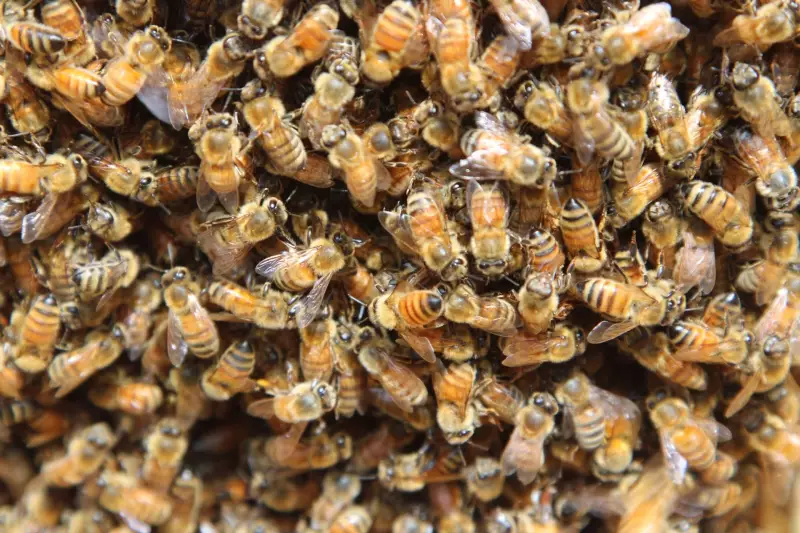A big concern for beekeepers in winter is worrying about whether or not their hives will survive the cold winter months. There are several reasons why a hive may not make it to Spring, and many of those are preventable.

Below are some of the most common reasons that a hive or bees may perish during the winter.

too much food
One reason could be that the frames are all blocked up with food at the end of summer going into autumn or over feeding with syrup so therfore the queen has no space to lay eggs to replace bees for the winter period. a balance is needed to avoid overfeeding, which can have unintended consequences for the hive's health and productivity.

Lack Of food
One of the main reasons that a hive will die out before the end of the winter is starvation. There are many reasons that bees may not have enough food though the winter, but all of them are preventable. Firstly, they may not have made enough stores. Secondly, it could be that they made enough, but the beekeeper took too much in the season. No matter what the cause, it is possible to ensure that your bees have enough food throughout the winter either by replacing their honey by giving them 1:1 sugar syrup feed or fondant
Excess Moisture
While bees are all clusterd together for warmth in the winter, they are producing moisture. The warm moisture evaporates off of the bees and rises to the cold areas of the hive above them, then collects and drips cold water back down onto the bees. This results in a drop in temperature, which in turn results in the bees dying. This problem can be fixed by adding more ventilation (not too much, or it’ll get cold in the hive!), or by putting something in the hive to absorb the moisture, such as newspaper. This way, the absorbent item will collect all of the moisture before it can rise to the top of the hive and cool off, and save your bees from a chilly demise.

Blocked entrances / exits
Bees are extremely hygiene conscious, and therefore like to keep their homes as tidy as possible. In order to do this, they must occasionally take what is known as a “cleansing flight,” where they leave the hive to defecate and get rid of any debris. They do this less frequently in the winter, and only on warmer days (around 10°C or warmer). This creates a problem if the entrance or exits become blocked by snow. Either the bees become trapped inside and are unable to clean their hive, or a bee that has taken a cleansing flight becomes trapped outside and freezes. The simple solution to this problem is to make sure to clean off all exits after every snowfall.

Infestation
Hives are susceptible to all sorts of infestations, whether they be mice, wax moths, or varroa mites,
Infestation stresses bees out, and stressed bees are unhealthy bees, and unhealthy bees rearly survive the winter. You can help your hive by keeping on top of pest management throughout the year. have the bees been treated for varroa mite. As far as wax moths go if the hive is strong enough the bees tend to deal with them but if the hive is too weak wax moth can take over, Mice can very messy chewing through comb making nests they should be deterred from entering the hive by installing mouse guards.

Temperature
Changes in the temperature are bad for bees. If it gets warm, bees may leave the cluster that they formed to keep each other warm, thinking that they no longer need to cluster together for warmth. If the temperature drops, though, those bees may not return to the group quickly enough, and may freeze to death.

failing queen bee
The Queen Bee fails to produce enough fertilized eggs to maintain the hive and dwindle away, The queen can have a brood break and does not come back in to laying eggs this can happen to any new or old queen and can be one of the causes of colony collapse or a poor mated queen can become a drone -layer laying unfertilised eggs, the queen has become too old to lay eggs or the Queen Bee has died.



Add comment
Comments